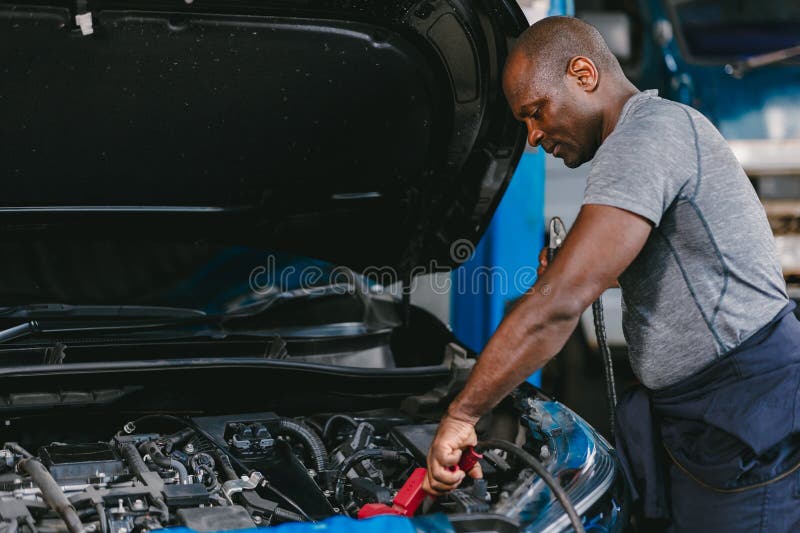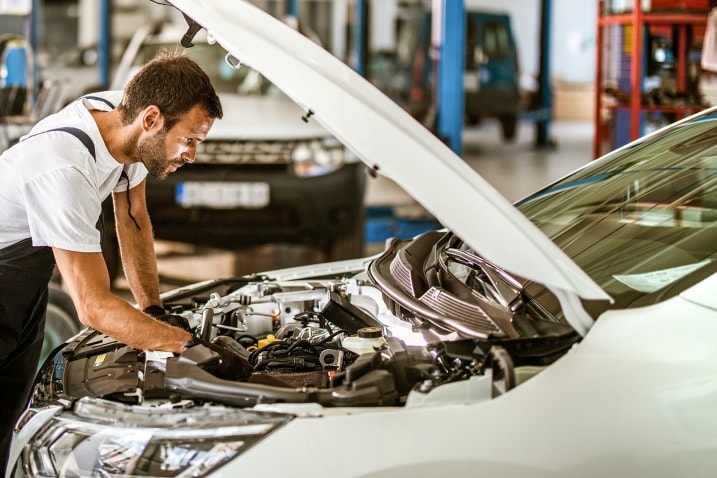Featured
Unforeseen car repair work can interrupt your funds, making vehicle repair insurance an attractive alternative for numerous motorists. Whether you're a brand-new auto owner or managing an older lorry, recognizing the information of auto repair work insurance coverage and insurance coverage is essential for making notified choices.
What Is Automotive Repair Work Insurance?
Automotive repair work insurance policy, often called mechanical break down insurance policy (MBI), is a policy developed to cover the expenses of fixing or replacing vehicle parts after a failure. Unlike common car insurance, which resolves accident-related damages, repair work insurance coverage focuses on mechanical concerns unassociated to collisions.
What Does It Cover?
The specific insurance coverage differs depending upon the insurance firm and the plan you select. Normally, fixing insurance covers:
Engine Repair works: Consisting of parts like the timing belt, pistons, and cylinder heads.
Transmission Services: Covering the transmission and associated parts.
Electrical System: Addressing concerns with alternators, beginners, and onboard computer system systems.
Cooling and Heating Systems: Such as radiators, thermostats, and cooling systems.
![]()
Guiding and Suspension: Consisting of shocks, shows off, and power guiding devices.
Nevertheless, plans usually omit regular upkeep, wear-and-tear products like brake pads or tires, and aesthetic damages.
![]()
Who Demands Automotive Repair Work Insurance?
While repair insurance coverage isn't obligatory, it can be advantageous for:
Owners of Older Vehicles: If your vehicle is out of guarantee, repair work insurance policy can provide satisfaction against pricey malfunctions.
Frequent Travelers: High-mileage chauffeurs are most likely to experience mechanical issues, making protection a beneficial financial investment.
Drivers of Expensive Versions: High-end or specialty lorries usually have greater repair service expenses, which can be minimized by insurance policy.
Key Benefits
Financial Protection: Aids avoid big, unforeseen repair expenses.
Versatility: Plans can be customized to cover certain components or systems.
Satisfaction: Minimizes stress concerning prospective malfunctions.
Considerations Before Acquiring
Before committing to a vehicle fixing insurance coverage, think about these variables:
Plan Terms: Review what is and isn't covered to prevent surprises throughout a claim.
Deductibles: Understand the out-of-pocket costs you'll require to pay prior to coverage kicks in.
![]()
Service Center Options: Some insurers need you to use details repair work facilities, which might be troublesome.
Premium Prices: Evaluate the yearly expense of the plan against the probability of needing major repairs.
Existing Guarantee: Examine if your lorry's producer or supplier warranty already gives sufficient insurance coverage.
Final Thoughts
Automotive repair work insurance policy can be a useful safeguard, particularly for drivers worried concerning the high costs of unexpected fixings. By thoroughly examining policy choices and aligning them with your driving practices and lorry needs, you can determine if this protection is appropriate for you. For added protection, always preserve routine car servicing to lessen failure threats and maximize your insurance policy advantages.
What Is Automotive Repair Work Insurance?
Automotive repair work insurance policy, often called mechanical break down insurance policy (MBI), is a policy developed to cover the expenses of fixing or replacing vehicle parts after a failure. Unlike common car insurance, which resolves accident-related damages, repair work insurance coverage focuses on mechanical concerns unassociated to collisions.
What Does It Cover?
The specific insurance coverage differs depending upon the insurance firm and the plan you select. Normally, fixing insurance covers:
Engine Repair works: Consisting of parts like the timing belt, pistons, and cylinder heads.
Transmission Services: Covering the transmission and associated parts.
Electrical System: Addressing concerns with alternators, beginners, and onboard computer system systems.
Cooling and Heating Systems: Such as radiators, thermostats, and cooling systems.

Guiding and Suspension: Consisting of shocks, shows off, and power guiding devices.
Nevertheless, plans usually omit regular upkeep, wear-and-tear products like brake pads or tires, and aesthetic damages.

Who Demands Automotive Repair Work Insurance?
While repair insurance coverage isn't obligatory, it can be advantageous for:
Owners of Older Vehicles: If your vehicle is out of guarantee, repair work insurance policy can provide satisfaction against pricey malfunctions.
Frequent Travelers: High-mileage chauffeurs are most likely to experience mechanical issues, making protection a beneficial financial investment.
Drivers of Expensive Versions: High-end or specialty lorries usually have greater repair service expenses, which can be minimized by insurance policy.
Key Benefits
Financial Protection: Aids avoid big, unforeseen repair expenses.
Versatility: Plans can be customized to cover certain components or systems.
Satisfaction: Minimizes stress concerning prospective malfunctions.
Considerations Before Acquiring
Before committing to a vehicle fixing insurance coverage, think about these variables:
Plan Terms: Review what is and isn't covered to prevent surprises throughout a claim.
Deductibles: Understand the out-of-pocket costs you'll require to pay prior to coverage kicks in.

Service Center Options: Some insurers need you to use details repair work facilities, which might be troublesome.
Premium Prices: Evaluate the yearly expense of the plan against the probability of needing major repairs.
Existing Guarantee: Examine if your lorry's producer or supplier warranty already gives sufficient insurance coverage.
Final Thoughts
Automotive repair work insurance policy can be a useful safeguard, particularly for drivers worried concerning the high costs of unexpected fixings. By thoroughly examining policy choices and aligning them with your driving practices and lorry needs, you can determine if this protection is appropriate for you. For added protection, always preserve routine car servicing to lessen failure threats and maximize your insurance policy advantages.
Latest Posts
Keep Your Carpet Looking Its Finest with Easy, Expert Treatment
Published Apr 20, 25
1 min read
Open Exclusive Discounts with WyHy's Love My Cooperative credit union Rewards
Published Apr 20, 25
1 min read
Change Your Home with Top Quality Flooring Solutions
Published Apr 19, 25
1 min read
More
Latest Posts
Keep Your Carpet Looking Its Finest with Easy, Expert Treatment
Published Apr 20, 25
1 min read
Open Exclusive Discounts with WyHy's Love My Cooperative credit union Rewards
Published Apr 20, 25
1 min read
Change Your Home with Top Quality Flooring Solutions
Published Apr 19, 25
1 min read